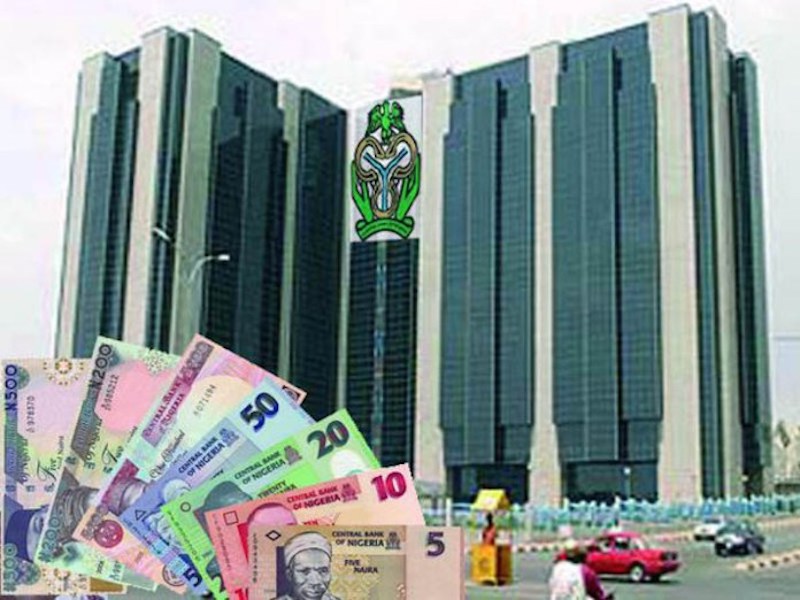With just one year to the Payment System Vision (PSV) 2020, the Central Bank of Nigeria (CBN) has disclosed that it has commenced a review of the project, just as it hinted of plan to set new targets under a refreshed version tagged PSV 2030.
This was revealed by the Deputy Governor, Financial System Stability (FSS) of the CBN, Mrs Aisha Ahmad, at the 2019 Electronic Payment Incentive Scheme (EPIS) Efficiency Awards held in Lagos at the weekend. According to her while progress has been made in the industry, electronic transactions were yet to reach desired levels.
Ahmad, who also doubles as the Chairman of the Nigeria InterBank Settlement System (NIBSS), noted that in spite of the milestones and achievements recorded with electronic payment channels, “we are not yet at the goal.”
“Electronic transactions are not yet at desired levels, increasing digitisation heightens cyber security threats while policymakers are faced with the twin but often conflicting objectives of fostering technological innovation whilst managing the risks to financial stability,” she added.
She noted that in furtherance of the payment system objectives and in response to developments in the industry, “the CBN is undertaking a review of the PSV 2020, which was created to provide a sound regulatory framework that supports innovation, protects consumers and promotes financial stability. The proposed refreshed strategy is tagged PSV 2030.
“The payments system has changed significantly and continues to evolve. New technologies and a growing number of financial technology companies in the markets are supporting faster payments and settlements.
“Technological advancements and the adoption of mobile as the primary channel has also made it easier and cheaper to conduct electronic transactions.
“These developments are validated by the astronomical increases in transaction volumes in virtually all electronic payment platforms.”
Quoting data provided by NIBSS, she said ATM transactions have risen by over 196 per cent, from 295 million in 2013, to 875 million in 2018, while point of sale transactions rose by 3,076 per cent from nine million in 2013, to 285.89 million in 2018.
She noted further that electronic transfers via web had improved by 2,440 per cent from two million in 2013 to 50.8 million in 2018.
“Contrastingly, paper-based payments transactions using cheques declined by over 35 percent between 2013 and 2018, 14 million transactions conducted using cheques in 2013 relative to nine million transactions in 2018,” she added.
Ahmad noted the Shared Agent Network Expansion Facility (SANEF) which was established in March 2018, by the body of deposit money banks, mobile money operators and super agents, aimed at expanding the number of agent outlets to 500,000, was expected to see the number of agents per 10,000 individuals increase from four agents to 65 agents by 2020.
She noted that a risk-based cyber security framework for deposit money banks and payment service providers was released in 2018 as a demonstration of the CBN’s commitment to strengthening the regulatory and supervisory framework for cyber risk and encouraging vulnerability testing and contingency planning by regulated institutions.
She added: “Our goal is a payments system that is not only nationally utilised but also internationally recognised- one that promotes efficiency, supports innovation while also anticipates and manages the risks from the adoption of new technologies.
“To achieve this objective, industry operators must scale up their capacity to innovate by developing unique products that provide the convenience and security that customers desire; enhance the capacity of their systems to handle significant volumes of e-transactions while also maintaining the efficiency of these platforms.”
She further said they must, “ensure interoperability of the various networks and address any developments that may erode customers’ confidence in the payment system; establish resilient cyber threat defence frameworks, moving beyond simple fraud monitoring and compliance; and collaborate and share vital information through reporting of security incidents and threats.”
On his part, the Acting Managing Director and Chief Executive of NIBSS, Mr. Niyi Ajao, said SANEF had increased financial access point from 20,000 to over 85,000 in a bid to increase financial inclusion nationwide.
“One of the achievements in 2018 is SANEF that is shared a network expansion facility started by the bank CEOs that is meant to grow the number of agents across Nigeria from about 20 000 we had in February 2018 which we planned to grow to 500,000 by 2020 and in 2018, we closed at about 85,000 agents and for me that is very remarkable as all stakeholders worked very hard to achieve that,” he said.
Meanwhile, Guaranty Trust Bank (GTB) emerged the ‘Bank of the Year,’ having clinched seven awards under the Cashless Driver (Bank) and Platform Efficiency (Bank) categories. The bank won awards for the highest number of Point of Sale terminal as well as the largest number of card usage on PoS.
It also clinched the highest successful transaction on direct debit, lowest failure rate on real-time transactions, USSD channel champion and Identity service driver. GTB alongside Zenith Bank, Sterling Bank and Union Bank were joint recipients of the e-references operation efficiency award.
Zenith Bank won the award for the highest volume in bulk payments, while First Bank of Nigeria received awards for the highest volume in bill payments and the highest transaction volume in real-time payments.








